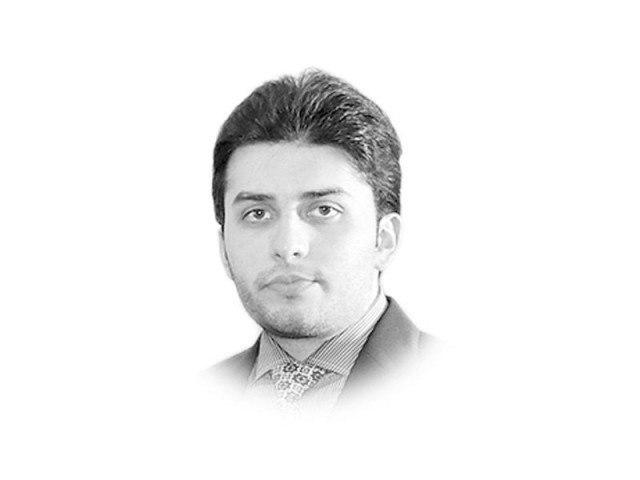Does PML-N have a head start?
Punjab will be an important battle-ground for the ruling party and the opposition

The writer has completed an MSc degree from the University of London
In the past few years, the ruling party has tiptoed from one crisis to another — the latest one being the disqualification of former prime minister Nawaz Sharif as party chief by the Supreme Court. The apex court decree threw the ruling party’s preparation for the Senate and general elections into disarray. For instance, in the recent Senate elections, PML-N candidates had to run as independents after the court nullified all decisions made by Nawaz. However, the party weathered this storm despite expectations that Nawaz’s unceremonious exit would make it easy for the opposition to dislodge the ruling party from power.
The PML-N’s independent-backed candidates won 15 Senate seats. Despite the loss of Senate chairman and deputy chairman positions to the opposition, the PML-N still retains control of the Senate, a reality that significantly improves its chances of beating the opposition at the ballot box. However, the ruling party should still be wary of political realignments taking place right before the election.
Opposition-backed candidates earlier won the Senate chairman and deputy chairman positions. Sadiq Sanjrani defeated the PML-N candidate for Senate chairman, Raja Zafarul. Sanjrani was an independent candidate backed by opposition parties — the PPP, PTI and MQM-P — as well as several independent senators from the Federally Administered Tribal Areas. This is not the first time opposition parties have united against the ruling party. In 2017, the opposition held joint campaigns in Punjab in an attempt to loosen the PML-N’s grip on the vote-rich province. If the well-orchestrated and systematic targeting of the PML-N’s political base continues, the ruling party may not be in good shape to contest the polls. The key question is whether there is a likelihood of an alliance between the opposition parties in the next three months.
There has been some show of unity among opposition parties in their fight against Nawaz and his brother Shehbaz, the chief minister of Punjab. The parties have been fighting to ensure there is no role for the well-entrenched political family in order to prevent the creation of a dynasty. If this unity can translate into a robust political alliance as the upcoming election enters its homestretch, the opposition can easily unseat the ruling party. Unfortunately, the Sharifs are the only glue that can bring these parties together. The opposition parties are ideologically different. A divided opposition could give the ruling party a head start. As such, a coalition between opposition parties could either spell doom for the PML-N or be a blessing in disguise.
Punjab will be an important battle-ground for the ruling party and the opposition. The PML-N is by far the most popular party in Punjab, even though social-political tensions in the province have threatened to erode or limit the party’s influence. However, results from the Senate elections indicate that the opposition’s attempts to shut down Punjab may be futile given the strong performance of the PML-N-backed candidates.
There’s a possibility that Nawaz’s exit from the political stage has removed a major factor that used to bring the opposition parties together. Based on the situation at hand, there is a likelihood of a political alliance between leading opposition parties. The PTI’s earlier refusal to back any party in the Senate chairman and deputy chairman’s election indicates that the opposition is still fragmented. As a result, the ruling party has a better chance of winning the upcoming general elections.
If the ruling party protects its Punjab vote-rich base from encroachment by opposition parties, it will approach the general elections from a position of power.
Published in The Express Tribune, March 19th, 2018.
Like Opinion & Editorial on Facebook, follow @ETOpEd on Twitter to receive all updates on all our daily pieces.














COMMENTS
Comments are moderated and generally will be posted if they are on-topic and not abusive.
For more information, please see our Comments FAQ